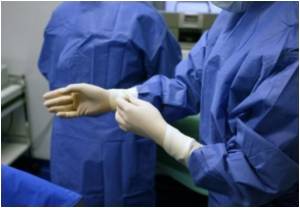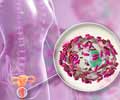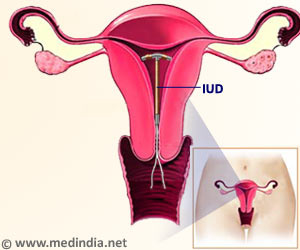The delicate balance of microbes in the vagina can vary greatly between healthy women, a new study has said.

The study, published online the week of May 31, 2010, in the journal Proceedings of the National Academy of Sciences, used genomics-based technologies to examine the vaginal microbes in 400 women. The work, a collaboration between the Institute for Genome Sciences and researchers at the University of Idaho, is the first in-depth, large-scale molecular characterization of vaginal microbial communities.
The research is an example of an emerging field of genomics, the study of the human microbiome. The human microbiome refers to all of the microbes that live on and in the human body. Scientists believe these tiny organisms interact closely with the human genome and play a critical role in human health and disease. In the vagina, these communities of microbes play a critical role in maintaining and promoting a woman's health and in protecting her against disease. Vaginal microbes provide protection mainly by producing lactic acid to create an acidic environment that is hostile to certain harmful microbes or infection.
"The surprising finding here is that some women can be healthy while still harboring different communities of microbes," said Jacques Ravel, Ph.D., associate professor of microbiology and immunology at the University of Maryland School of Medicine and associate director of the Institute for Genome Sciences. "Even microbes that were previously believed to be detrimental to a woman's health seem to be part of a normal ecosystem in some women, according to this study. Further research is needed to establish the function of these microbes and the communities in which they appear. Some of the seemingly beneficial microbial communities seem to be associated with a higher pH - a measure of acidity - which is usually considered to be unhealthy."
"We've found we can actually group women by the type of microbes they have in the vagina," says Dr. Ravel. "We hope this is leading to personalized medicine. The study shows that doctors should not assume every woman is the same. We may not need to personalize reproductive medicine down to the individual woman, but by which microbial group they belong to. The information about each woman's vaginal microbial community could inform how doctors treat her for vaginal conditions. It could help drive the development of better treatments to reestablish vaginal health. Understanding these microbial communities could also help us determine which women might be at higher risk for infections."
Yeast infections or bacterial vaginosis, a bacterial infection of the vagina, cause discomfort in patients and can have serious health effects. About 25 to 30 percent of women have bacterial vaginosis on any given day, and it is the most common vaginal infection that causes women of reproductive age to visit their primary care physician. The infection has been associated with an increased risk of such problems as acquiring sexually transmitted infections and even pre-term delivery during pregnancy. "If we could identify women as being at a high risk for developing bacterial vaginosis, we could develop preventive methods to lower the risk of infection," says Dr. Ravel.
The study involved vaginal samples taken from 400 women representing four ethnic groups equally: black, Hispanic, Asian and white.
Source-ANI













